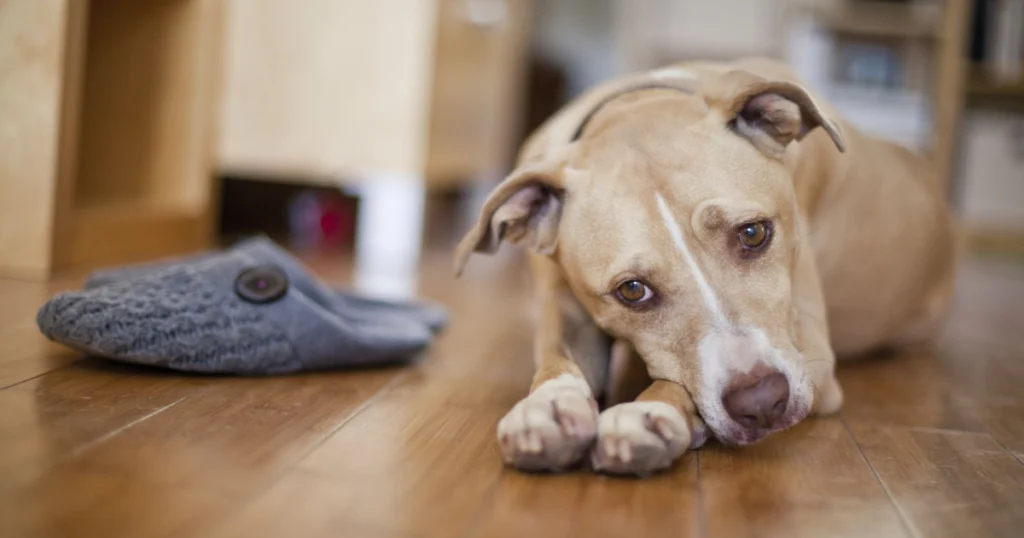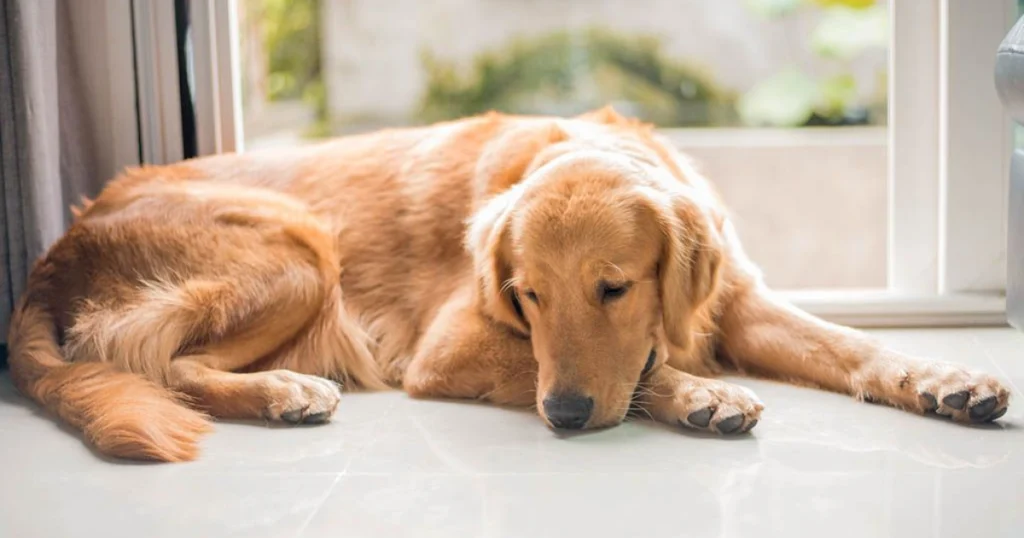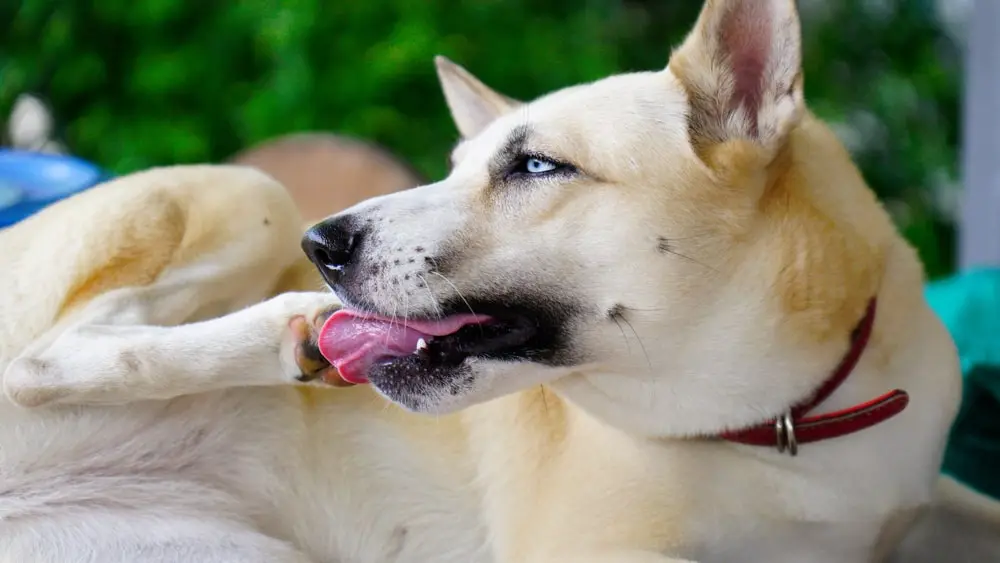If you’ve ever caught your dog chewing or licking their paws, you might have thought it was just a quirky habit. But here’s the thing—paw chewing can be a sign of something more than just a canine pastime. It could mean your furry friend is trying to tell you something, whether it’s about their health, emotions, or environment. As a devoted pet parent, it’s natural to want to get to the bottom of this behavior and ensure your pup is happy and healthy.
In this article, we’ll explore 7 surprising reasons why dogs chew their paws, offering insights and practical solutions for each cause.
Table of Contents
Is Paw Chewing Normal?

Before diving into the reasons, let’s address an important question: Is it normal for dogs to chew their paws?
Occasional licking or chewing is often harmless. Dogs might clean their paws after a muddy walk or nibble to remove a small irritant. However, persistent or obsessive paw chewing can signal a deeper problem.
When should you worry? Look for signs like redness, swelling, bleeding, or bald patches. If these symptoms appear—or if the chewing disrupts your dog’s daily life—it’s time to investigate further.
7 Surprising Reasons Why Dogs Chew Their Paws
1. Allergies: Environmental or Food-Related
Allergies are one of the most common reasons dogs chew their paws. Just like humans, dogs can be sensitive to their environment or diet. Pollen, grass, mold, and even household cleaning products can trigger itchy paws.
Signs to watch for:
- Red, inflamed paw pads.
- Excessive licking, especially after walks or mealtime.
What you can do:
- Wipe your dog’s paws with hypoallergenic wipes after outdoor activities.
- Consider switching to a limited-ingredient or hypoallergenic diet if food is the suspected culprit.
2. Dry Skin or Irritation
Winter months and low humidity can wreak havoc on your dog’s skin, leading to dry, cracked paw pads. Harsh grooming products or walking on salty sidewalks can also cause irritation.
How to tell it’s dry skin:
- Flaky skin or peeling on the paw pads.
- Reluctance to walk on certain surfaces.
Solutions:
- Use a moisturizing paw balm to protect and heal the pads.
- Add omega-3 fatty acids to their diet to improve skin health.
3. Parasites: Fleas, Ticks, or Mites
Parasites are a pesky problem that can cause relentless itching, prompting your dog to chew their paws for relief. Even a single flea bite can lead to hours of irritation.
Other symptoms to note:
- Hair loss around the affected area.
- Constant scratching or biting other parts of the body.
Prevention tips:
- Keep your dog on a regular flea and tick prevention regimen.
- If an infestation is suspected, consult your vet for appropriate treatment.
4. Anxiety or Stress


Did you know that paw chewing can be a sign of emotional distress? Dogs, much like people, can experience anxiety. For them, chewing might act as a coping mechanism.
What causes stress in dogs?
- Separation anxiety.
- Loud noises like thunderstorms or fireworks.
- Changes in their routine or environment.
Ways to ease their anxiety:
- Increase exercise and interactive playtime to burn off nervous energy.
- Try calming products, such as pheromone diffusers or anxiety wraps.
5. Pain or Injury
Sometimes, the simplest explanation is the right one. Your dog might be chewing their paw because something hurts. A splinter, a thorn, or even a minor cut can drive them to lick the area excessively.
What to check for:
- Swelling or bleeding.
- A foreign object stuck between their paw pads.
What to do:
- Carefully inspect the paw and remove any visible irritants.
- Clean the area with a pet-safe antiseptic and apply a bandage if needed.
6. Boredom or Lack of Stimulation
Dogs are intelligent creatures that thrive on mental and physical stimulation. Without enough to do, they can develop habits like paw chewing simply out of boredom.
Is your dog bored? Look for these signs:
- Restlessness or pacing.
- Destructive behavior, like chewing furniture or shoes.
How to keep your dog engaged:
- Invest in puzzle toys or treat-dispensing gadgets.
- Make time for regular walks and training sessions.
7. Underlying Health Conditions
In some cases, paw chewing can indicate a more serious health issue, such as an autoimmune disease or hormonal imbalance like hypothyroidism. These conditions often manifest through persistent chewing and other noticeable symptoms.
When to consult your vet:
- If chewing continues despite trying other solutions.
- Accompanying symptoms like weight changes or lethargy appear.
Quick Reference Table: Causes and Solutions
| Cause | Symptoms | Solution |
|---|---|---|
| Allergies | Red, itchy paws | Hypoallergenic wipes, diet adjustments |
| Dry Skin | Flaky, cracked pads | Moisturizers, omega-3 supplements |
| Parasites | Scratching, hair loss | Flea/tick prevention, vet care |
| Anxiety | Stress behaviors | Calming products, increased exercise |
| Pain/Injury | Swelling, visible wounds | Inspect, clean, vet assistance |
| Boredom | Restlessness, chewing habits | Interactive toys, daily play |
| Health Conditions | Persistent chewing, lethargy | Veterinary diagnosis |
Prevention Tips for Healthy Paws
Prevention is always better than cure. By incorporating these habits into your routine, you can help your dog avoid paw-chewing triggers altogether:
- Regular grooming: Trim your dog’s nails and check for any signs of irritation or injury.
- Paw protection: Use dog booties in extreme weather and clean their paws after outdoor walks.
- Balanced diet: Ensure your dog is eating high-quality food rich in nutrients to support skin and coat health.
- Routine check-ups: Visit your vet regularly to catch any health concerns early.
Frequently Asked Questions
Why do dogs chew their paws even when they seem healthy?
Even healthy dogs might chew their paws occasionally due to mild irritants or as a habit. However, if the behavior becomes frequent or obsessive, it’s worth investigating further.
Should I stop my dog when they chew their paws?
It depends. If the behavior is occasional, it might be harmless. However, if your dog chews to the point of redness or injury, it’s essential to step in and identify the cause.
How do I know if my dog’s paw chewing is serious?
Watch for signs like swelling, redness, or hair loss. Persistent chewing accompanied by behavioral changes or other symptoms should prompt a visit to your vet.
Conclusion: Helping Your Dog Live Their Best Life
Paw chewing isn’t just a quirk—it’s often your dog’s way of communicating discomfort, boredom, or stress. By understanding the reasons behind this behavior and addressing them promptly, you can ensure your pup stays happy, healthy, and comfortable.
Remember, your dog relies on you to notice the little things that make a big difference. Whether it’s adding a new toy to their routine or scheduling a vet visit, every step you take brings them closer to a better quality of life.
Take action today—because your dog deserves the best care from head to paw.

